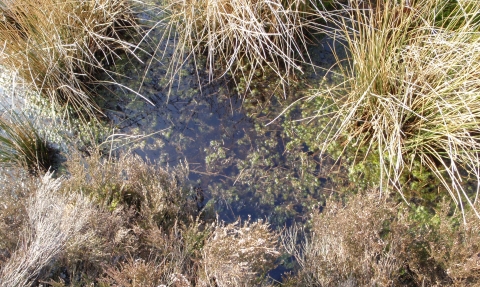Lost Wetlands in Cheshire and Lancashire are amongst six new landmark nature projects to boost wildlife recovery and improve climate security are being launched by Natural England
Extending over 5,000ha the project will reclaim, restore and rewild a mosaic of wetland habitats in South Greater Manchester and North Cheshire, previously lost to historic industrialisation, urbanisation and agricultural intensification of the landscape.
A network of wetland habitats will be restored to improve connectivity for wildlife, creating habitats where dragonflies, great crested newts and water voles can thrive.
The project will also engage young people and communities, providing greater connection to the wetlands on their doorstep and opportunities to celebrate the natural heritage of the area.
Another project based in the upland regions of Cumbria, stretches over 100,000ha from fertile farmland of the eastern Eden Valley to the western slopes of the North Pennines and the moorlands above.
The project will support land managers to create habitats for species such as the curlew, black grouse and the Teesdale Violet. Natural flood management techniques will reduce flood risk and improve the absorption of carbon by rewetting peat.
While around Bradford and the South Pennines, the partnership will restore and enhance the condition of the upland peat landscapes in the South Pennines, restoring habitats for moorland birds such as the endangered twite.
Natural Flood Management techniques will benefit communities at risk of flooding in the Calder Valley with the creation of intertwining mosaics of wetland habitats. Green corridors will also be created, linking upland sites to the urban environment and industrial heartlands and allowing wildlife to move freely.
The project will work closely with community groups and the NHS, providing opportunities to connect the people of Bradford and West Yorkshire with nature on their doorstep.
Working with Bradford City of Culture 2025, the project will encourage sustainable access to nature and highlight the environmental links between the industrial heartlands of West Yorkshire and the moors which define them.
Tony Juniper, Chair of Natural England, said:
These nature recovery projects will enrich our landscapes for wildlife, develop resilience to climate change, catch carbon and help to clean up air and water. They will help restore entire ecosystems, allowing many species of wild animals and plants to spread and thrive. They will also enhance the opportunities people have to make the most of the wellbeing benefits that come with connecting to the natural world.
To fight the challenges posed by Nature loss and climate change it will be essential to build broad and trusted partnerships. I am pleased that the projects announced today signal a commitment to bold and collaborative action at landscape scale to create a Nature Recovery Network which is essential to firmly put nature on the road to recovery.







